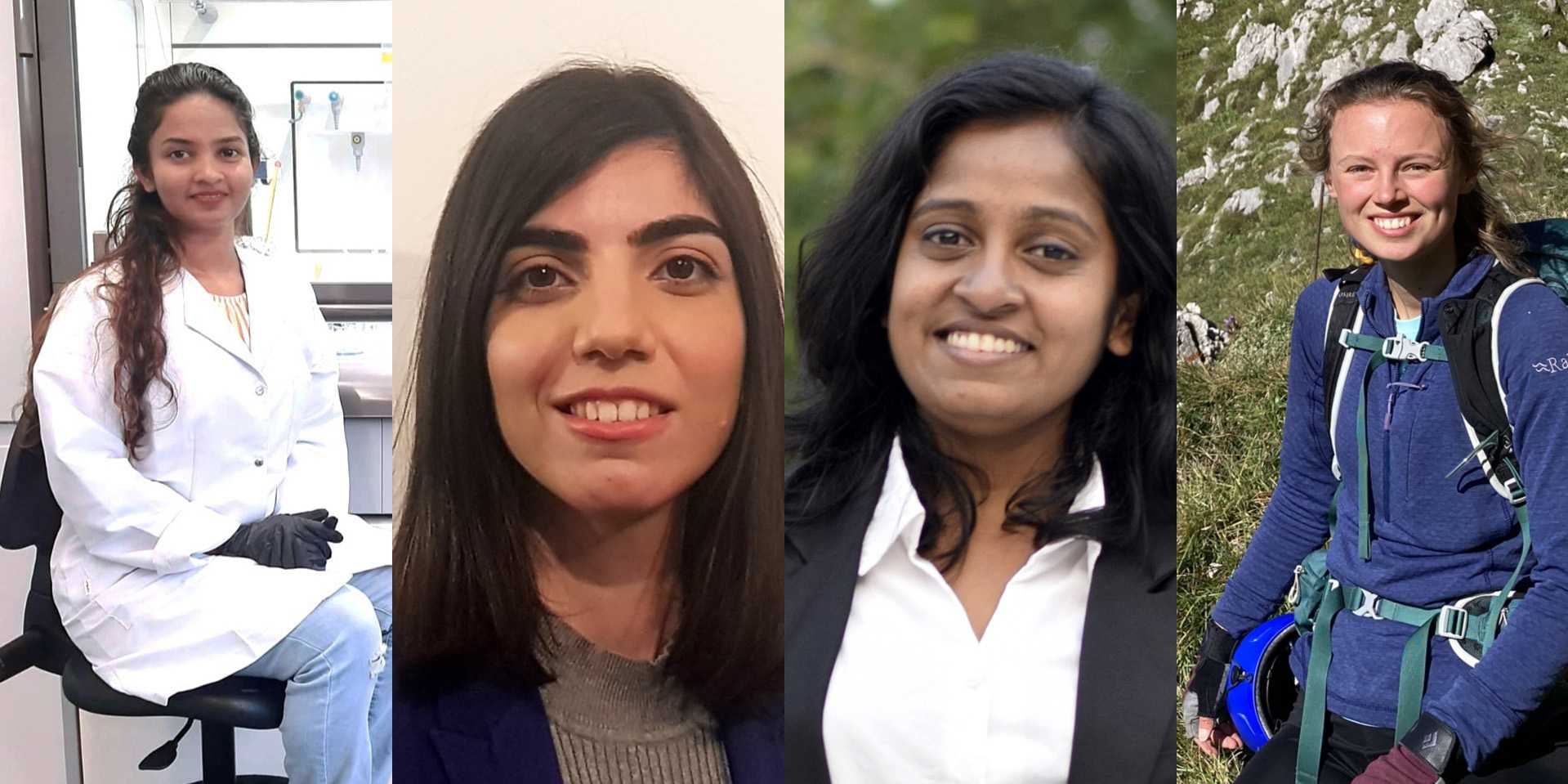Congratulations to the Judith McKenzie fellows!
We are excited to introduce four exceptional early-career researchers, each awarded with the Judith McKenzie Visiting Early Career Researcher Fellowship following the 2024 call of proposals. These scholars are working on diverse projects in geoscience, further enriching our research environment.

About the Judith McKenzie Visiting Early Career Researcher Fellowship
The Judith McKenzie Visiting Early Career Researcher Fellowship is open to female-identifying PhD students (in any year of their programme) and Postdocs (within three years of obtaining their PhD) who are currently enrolled/employed at an established university or research institute. The goal of the fellowship is to foster scientific interactions, develop broader research networks, and ultimately to help improve gender representation in our community.
The Judith McKenzie fellows 2024
Nadee Nanayakkara

Thank you for awarding me the Judith McKenzie Fellowship at ETH Zurich. My PhD thesis is on “Deciphering the magnitude and impact of spatiotemporal biases in paleoclimate reconstructions” and working on the carbon cycle and focussing on radiocarbon and organic biomarkers.
With the Climate Geology research group, I will assess paleotemperature and stable isotopic signals derived from alkenones. I will analyse samples from my PhD project using GC-FID and GC-IRMS. Then, I plan to collaborate with the Biogeoscience research group. Using the alkenones processed in the laboratory, I will purify and radiocarbon date the alkenones via AMS at ETH facilities. I will also prepare and radiocarbon date organic carbon and microfossils from my samples. I will use this data to explore the transport pathways of these proxy-bearing molecules in the ocean. Finally, I will work with the Earth Ecosystem Dynamics research group. Their expertise in organic biomarkers will enhance my knowledge of the environmental information derived from these organic molecules. Also, access to analytical facilities for HPLC will maximise the potential of the samples related to my PhD research questions.
Emily Elhacham

I am an interdisciplinary researcher in the field of computational geoscience, specialising in sensing technologies and advanced computing. I focus on the development and utilisation of sensing platforms, from nano-sensors and sensor networks to satellite remote sensing. During my stay, I will explore the use of space-based remote sensing platforms, especially hyperspectral, for geoscientific applications. I will join the Space Science and Technology research group.
I am looking forward to interacting with the community, taking part in departmental activities, and engaging in fruitful discussions surrounding the integration of sensing technologies and advanced computing in Earth and Planetary Science research and development. I am honored to receive the Judith McKenzie Fellowship, and I am looking forward to visiting the department.
Mita Uthaman

I am a PhD candidate from the Department of Geology & Geophysics at the Indian Institute of Technology Kharagpur. I am currently working with the Earthquake Seismology group in the department. My thesis is broadly aimed at understanding the seismotectonics of Sikkim Himalaya.
I will be collaborating with Dr. Anne Obermann at the Swiss Seismological Service (SED). We plan to extend the collaborative work of ambient noise interferometry conducted for Sikkim Himalaya. We intend to investigate the response of seismic velocity to fluctuations in reservoir load, with the motivation to understand its implications on crustal deformation.
Julia Johnson

During my time with the Structural Geology and Tectonics research group, I worked with Dr. Leif Tokle principally with the Griggs apparatus. We ran three experiments to study the effect of NaCl and Calcite on quartz and Mica.
Towards the end of my stay, I worked on modelling exponential flow laws with composite power laws and producing a schist flow law by combining the power and exponential flow laws. The idea is to be able to better represent these rheologies in numerical models by increasing the accuracy and the computational efficiency.
My Master's back at Oxford is on palaeoseismology in Azerbaijan and the possible relationship between strike slip faults and mud volcanoes. I will be using field data collection, principally trenching, and remote observation.